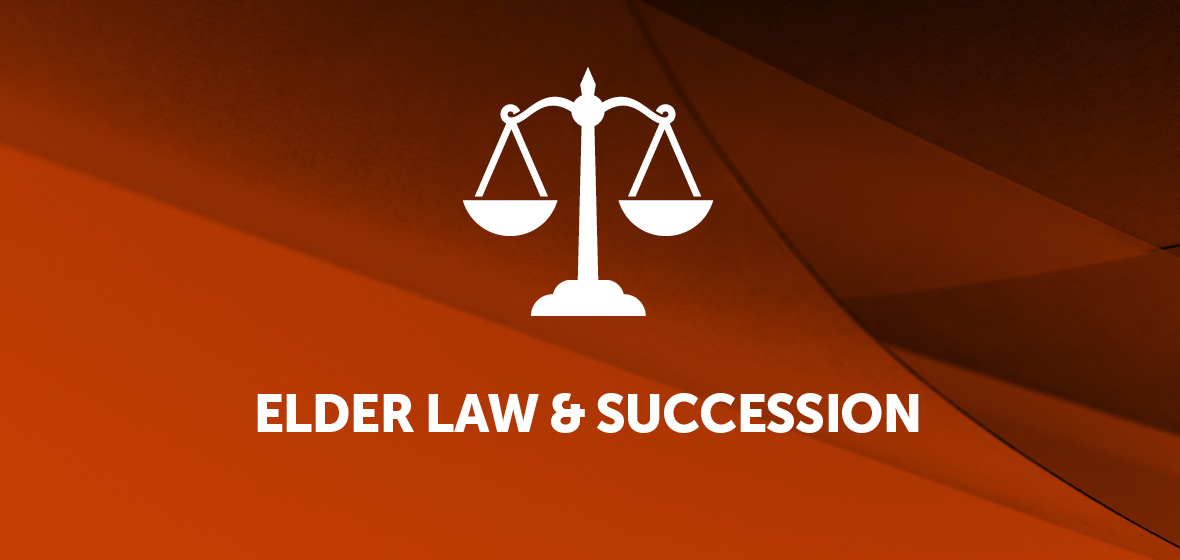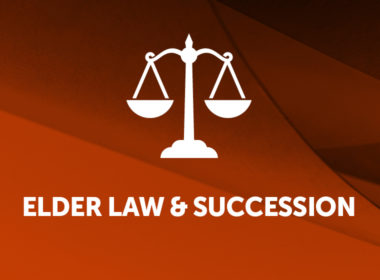Key decisions
- Enal v Singh (Trinidad and Tobago) [2022] UKPC 13
- Re Boglis [2022] VSC 309
- Grabovic v Yang [2022] VSC 417
- Engelina Maria Sellin as executrix of the estate of Milan Glavota v Galic
[2022] WASC 249 - ZKN [2021] NSWCATGD 34
- Discharge of Adoption of K [2022] NSWSC 1197
- Re Roth [2022] VSC 511
Undue influence where unusual sale by attorney not explained
Ravi Maharaj (‘Ravi’) owned land purchased in 1976. In 1964, Ravi had granted power of attorney to his father, Ramnarine Maharaj (‘Mr Maharaj’). In 2006, Mr Maharaj used the power of attorney to transfer ownership of the land to Mr Maharaj’s daughter, grandson, granddaughter and grand stepdaughter for significant undervalue. Ravi was not consulted or told about the sale and was not paid the consideration. At the time, Mr Maharaj was 90 years of age. He was living with his daughter and was completely dependent on her and his grandson for his everyday needs. He had granted a power of attorney to the grandson (‘the second power of attorney’).
After Ravi’s death, a claim was brought by his executor to recover the land. The claim was based, in part, on alleged undue influence. The Board observed that ‘a case based on undue influence is a somewhat indirect way of challenging what seems to have been a breach of fiduciary duty by Mr Maharaj in relation to the sale of his son’s property’ (Enal v Singh (Trinidad and Tobago) [2022] UKPC 13 at [50]). The Board observed that ‘the existence of the [second] power of attorney is not of itself sufficient to raise a presumption of undue influence, but it is probative of a relationship of trust and confidence which coupled with the highly unusual aspects of the sale that the Board has identified does lay the ground for an inference of undue influence in this case’ (at [57]). (The Court of Appeal (WA) made a similar observation in Gunn v Meiners [2022] WASCA 95 that the appointment of a person as attorney demonstrates that the principal placed trust and confidence in the attorney (at [14])).
The Board stated that ‘In these circumstances the 2006 sale is only explicable in terms of Mr Maharaj being influenced into wishing to benefit the defendants with whom he lived and to whom (in the case of [his grandson]) he had entrusted much of the day-to-day management of his financial affairs. The power of attorney is confirmation in terms of that relationship’ (at [58]). ‘When a transaction of this kind which clearly calls for an explanation takes place between persons who are in a relationship of trust and confidence the stage is set… for the court to infer that, in the absence of a satisfactory explanation, it can only have been produced by undue influence’ (at [60]).
A recent decision where the requirements for undue influence, and available defences, are also considered is BSJ [2022] QCAT 51.
Passing over an obstructive executor
By Aphrodite Boglis’ last will, she appointed two of her adult sons, Arthur and Tony, as executors. She divided her estate equally between Arthur, another son Thomas, and Tony’s two adult children. Prior to Aphrodite’s death, Tony and his children lived in her home for many years rent free. After her death in August 2020, Tony and his two children remained in her home without paying any rent. Seven months after the deceased’s death, Arthur took action to obtain possession of the home. In September 2021, Arthur and Tony entered into an agreement for Tony to vacate the home. Tony did so but the home was left in a filthy state, with rubbish both inside and outside the home. No cleaning had been done, bins were not emptied, garden waste was not disposed of, taps were dismantled and appliances inside the home were unclean (at [44]). Tony insisted on a sale reserve for the home which was 50 per cent more than the price recommended by the real estate agent. Arthur brought proceedings seeking a grant of probate to himself with Tony being passed over as executor.
The Court made the order. The Court observed that the ‘circumstances that have caused the delay since the terms of settlement were signed arise from [Tony’s] conduct which appears to have been aggravated by his consideration of his own interests, in particular in not dealing with the cleaning up and removal of the rubbish before vacating the [home]. He also showed himself to be obstructive in his refusal to accept professional advice as to the appropriate manner to sell the [home]. What should have been a relatively straight forward administration became a drawn out and combative process that is not in the interests of the beneficiaries. If [Tony] is not passed over, it is likely that the estate will continue to remain unadministered. In the circumstances, it is in the interests of the beneficiaries that [Tony] be passed over so that the estate can be duly and properly administered according to the terms of the will’ (Re Boglis [2022] VSC 309 (McMillan J at [47]).


